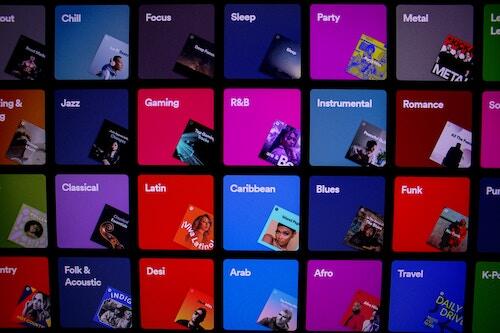IN THIS ISSUE
- From the Editor’s Desk: Announcing: Wordling PLUS
- On The Wordling: How I sold 100 articles during my first year of freelancing
- News & Views: The rise of the microgenre

FROM THE EDITOR’S DESK
Hey everyone,
Thank you all so much for the lovely emails you sent me for last week’s editorial. I’ve never had such a huge response to a Wordling newsletter, so I’m thrilled that my thoughts on being a multi-passionate creator resonated with so many of you.
There was a tiny mistake in the editorial—I’ve written 1,160 stories for publications, not 1,600. I know most of you won’t care, but given that I ran those numbers, you can probably tell that I do, so I wanted to set the record straight.
Oh, and I’m finally ready to reveal more about what I’ve been working on behind the scenes.
See, I’ve been thinking about multi-passionate creators for a while, partly because I am one, and partly because I talk to my community of writers all day, every day. I know the kind of people who find me and want to learn from me, and if there’s one thing I know for sure about the people who resonate with my work, it’s that you’re ambitious writers who not only want to do meaningful work in the world, but be paid well for it.
Teaching writers how to build high-paying careers doing the work they love has been my mission for a long time and it’s why, in September, I’m launching Wordling PLUS. This will be the culmination of my 20+ years in the industry and two decades of experience freelancing for top publications, creating six-figure businesses, and launching eight bestselling indie books. It’s the most exciting thing I’ve ever launched and I’m super pumped for it.
Wordling PLUS will open to the public in mid-September, but because my newsletter readers have always been my primary community, I have something extra special for you. For newsletter subscribers only, I’ll be doing a pre-sale with a massive discount (as much as 90%) during the first week of September.
However, there’s a catch. To get access to the special pre-launch pricing, you have to be on our waiting list. (It’s super simple. Just click on this link and you’ll be added automatically. No complicated sign-up required.) In September, I’ll send you an email telling you about Wordling PLUS, as well as how you can become a founding member, before we officially open doors to everyone else.
If you’ve taken any of my courses (or, I don’t know, read this newsletter), you know I like to over-deliver. And I know that Wordling PLUS is going to be a game changer for many writers.
There’s no obligation to join, even if you are on the waiting list. But you’ll only have the chance to be a founding member and be part of the pre-launch pricing if you’re on the waiting list, so make sure to get on it, even if you’re slightly curious. Just click here to be automatically added.
It’s been such an honor to have so many people tune in weekly to be a part of my writing and publishing journey. And now I can’t wait to take this next step towards becoming a part of yours.
Enjoy the issue!
Natasha Khullar Relph
Editor, The Wordling
ON THE WORDLING
How I Sold 100 Articles During My First Year of Freelancing
The 13 steps that resulted in 100 paid writing credits in my first year as a freelance writer.
In looking back over my own 20+ years as a freelance writer, the decisions I made in my first year of freelancing acted as the basic building blocks for what would become a profitable writing career. When I first started freelancing, I had never written anything for publication, I had no experience (I was still in college), I had no contacts, and I certainly had no clue.
But during that first year, I had over 100 bylines, some in national magazines, others in small websites that no one had ever heard of.
How did I do it? Here’s the lowdown.
NEWS & VIEWS:
What does the rise of the microgenre mean for authors?

Genres have always been debated within the publishing industry. While publishers believe genres facilitate discoverability, authors have frequently found them limiting for creativity. In 2023, however, there is no debating whether genres are necessary. Not only have genres become a mainstay of the reader experience, but have spawned hundreds, if not thousands, of microgenres.
From “two-hour beach reads” to “portal fantasies in strange realms” and “billionaires and babies,” there’s something for everyone. Just this week, The New York Times published a story about how “hockey romance” has not only become a thriving literary subgenre, but is increasingly controversial, and the Guardian wrote about how it’s time for “sad girl literature” to grow up and deal with some real problems.
While most of these microgenres fall under the umbrella of romance, fantasy, or crime, it’s likely that more subgenres will continue to come up, not only in fiction, but nonfiction as well.
Here’s why this could be good news for author discoverability:
1. Niche, highly engaged readers
Researchers at the University of Melbourne looked at the rise of the microgenre in 2019 and indie published a book as an experiment. Dr. Beth Driscoll writes, “What our self-publishing adventure highlights is that microgenres help books and readers find one another in a global, digital age. Microgenres feed the algorithms that can push books towards niche bestseller charts or reading communities, and then springboard them into wider readerships.”
2. Loyal, repeat readers
When readers look for specific niche subgenres and find books in those genres, they’re easily converted into loyal, repeat readers. Because when a reader is looking for a niche, they’re often really looking for that niche, and if they can find an author they love, they’re likely to support that author over multiple books and years.
3. Predictability
This can be a double-edged sword. “A book that is contained within a microgenre must adhere to its rules, and if it deviates slightly, readers may be disappointed,” writes Arvyn Cerézo for BookRiot. “Authors need to find balance by bringing something new to the table while giving what the reader wants, and that’s a lot of work to accomplish.” If you’re the kind of writer who wants to write exclusively in a certain sub-genre, however, writing multiple books in a small but popular microgenre can be a winning recipe for success.
ALSO SEE
The biggest news in publishing this week is that the private investment firm KKR has reached an agreement with Paramount Global to acquire Simon & Schuster for $1.62 billion in an all cash transaction. KKR, or Kohlberg Kravis Roberts, is a New York-based investment firm that has invested in Facebook and ByteDance, TikTok’s parent company.
In other news, AI is creating headaches for authors and publishers alike. Author Jane Friedman found that books generated by AI under her name had been uploaded to Amazon and linked to her profile on Goodreads. Worse, before her post went viral, Amazon refused to remove them. The New York Times reported this week that Amazon has been flooded with AI-generated travel guidebooks by “renowned travel writers” who are, in reality, completely made up. And authors and illustrators are increasingly fighting to have their contracts reflect their work won’t be used to train AI.
GLOBAL REPORT
NEPAL: “Translating and publishing books without permission from authors or publishers is a punishable crime. But Nepal’s book market is full of such unauthorised translations and prints of books written by the who’s who of the world literature… The government decision to impose a 10 percent tax on book imports in fiscal year 2019-20 led to a proliferation of pirated book markets, booksellers say. After the decision, booksellers started to cut back on imports and that led to the entry of a new crop of pirated booksellers.”
NORWAY: “First, the newspaper began publishing all corrections in a single log — the beginning of a “wave” of changes to increase transparency with readers, Brenne said. VG leaders next developed a centralized list of the paper’s part-time, non-journalist video contributors, their commercial ties and potential conflicts of interest, and a clear set of internal rules for all VG staff.”
INDIA: “India’s media landscape has changed dramatically since 2014 when Modi and the Hindu nationalist Bharatiya Janata Party (BJP) came to power. In the nine years since, Modi has consolidated his grip on the government, in part by cracking down on independent media through police violence, tax investigations, threats to journalists, harassment campaigns, and suspending much-needed revenue from government advertising. But with Adani’s acquisition of NDTV, the last of India’s private news channels will fall under corporate ownership that is politically affiliated with Modi’s BJP ahead of the crucial 2024 elections. NDTV was one of the last bastions of free speech within the Indian broadcast media.”
QUOTE OF THE WEEK
“I would write a book, or a short story, at least three times — once to understand it, the second time to improve the prose, and a third to compel it to say what it still must say. Somewhere I put it this way: first drafts are for learning what one’s fiction wants him to say. Revision works with that knowledge to enlarge and enhance an idea, to reform it. Revision is one of the exquisite pleasures of writing.”
– Bernard Malamud
SHARE THE WORDLING
Sharing is caring. Share The Wordling with a writer you care about.

